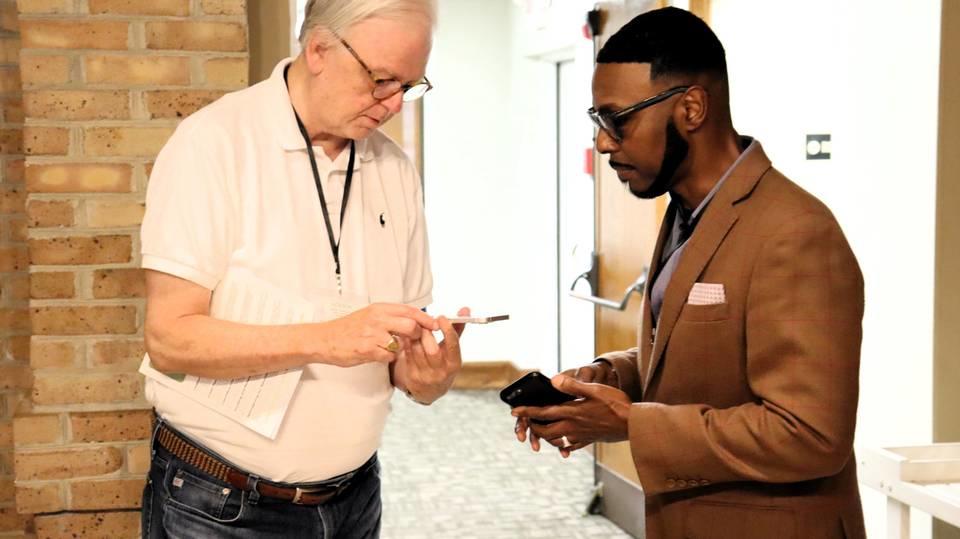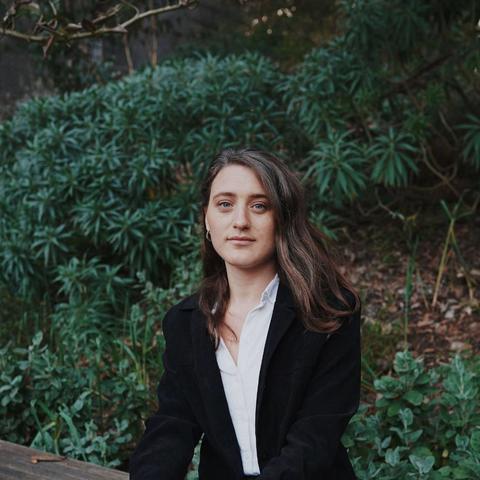
Caption
Pastor Bob Farrow of St. Nicholas Episcopal in Hamilton, Ga., and Harris County pastor Willie J. Barber II of Prospect A.M.E. meet and share contact information in Columbus at the Green Team Summit, a gathering of churches seeking to be part of climate solutions.
Credit: Kala Hunter/Ledger-Inquirer



